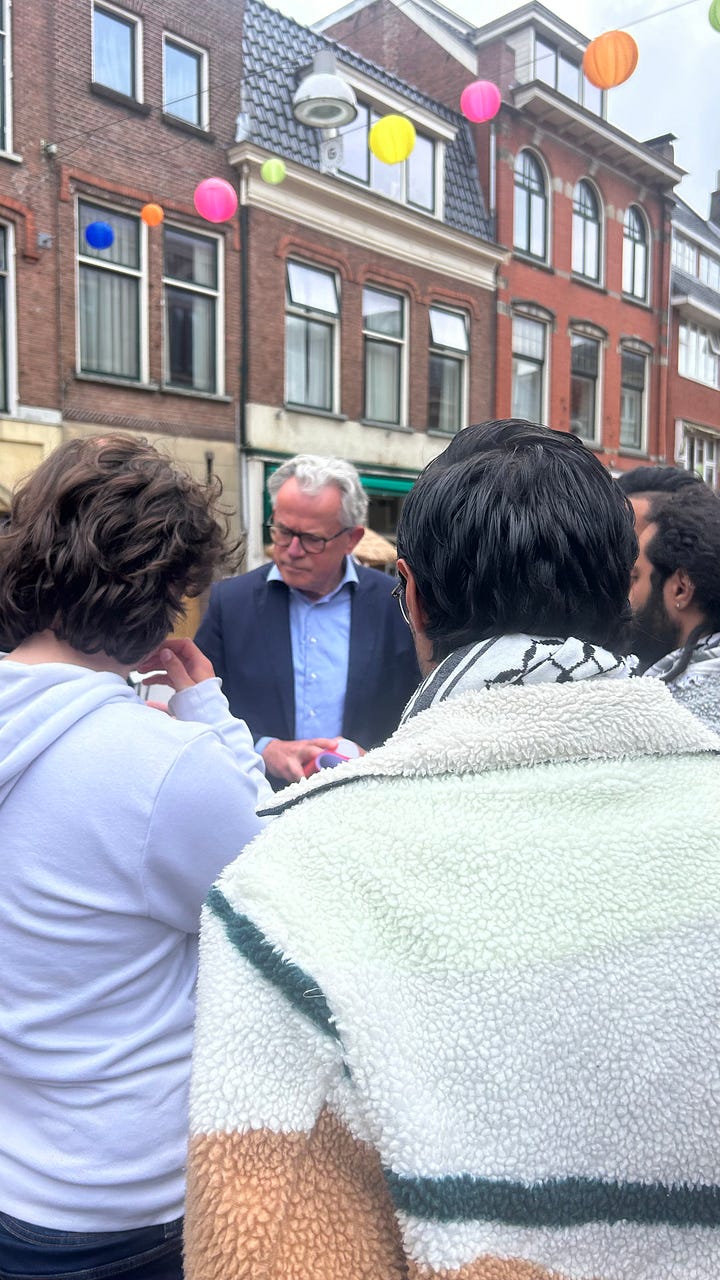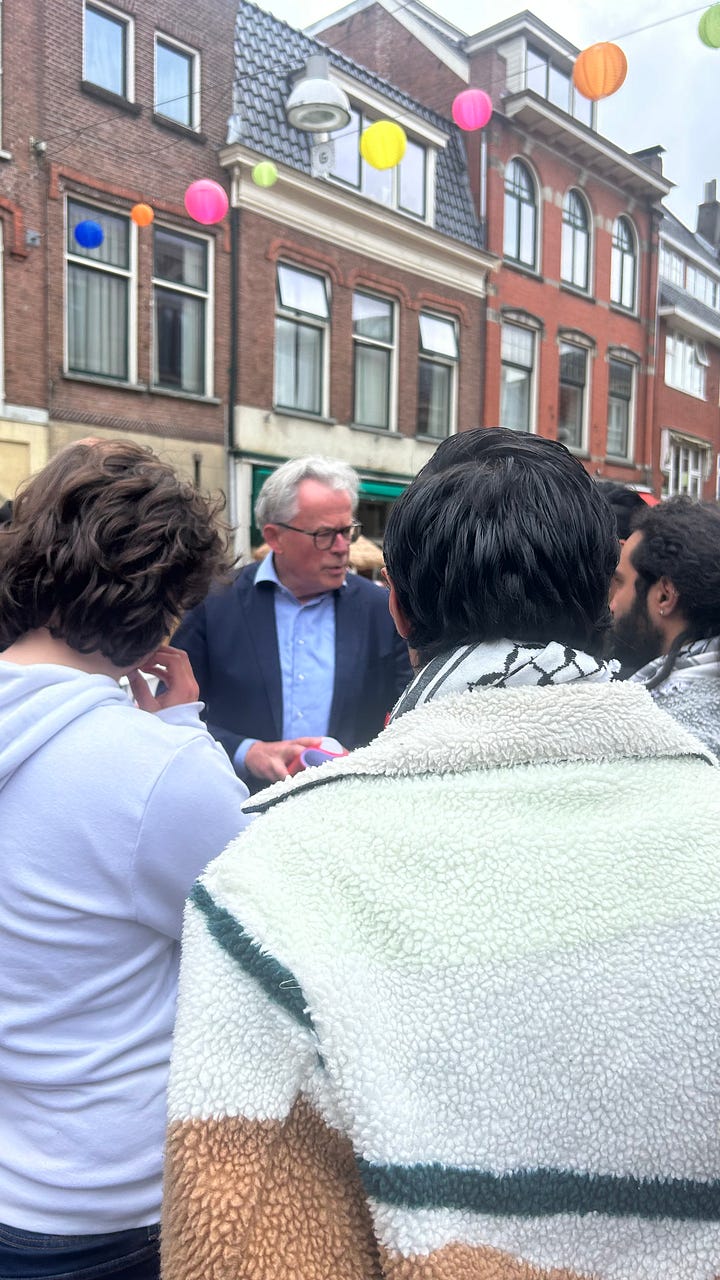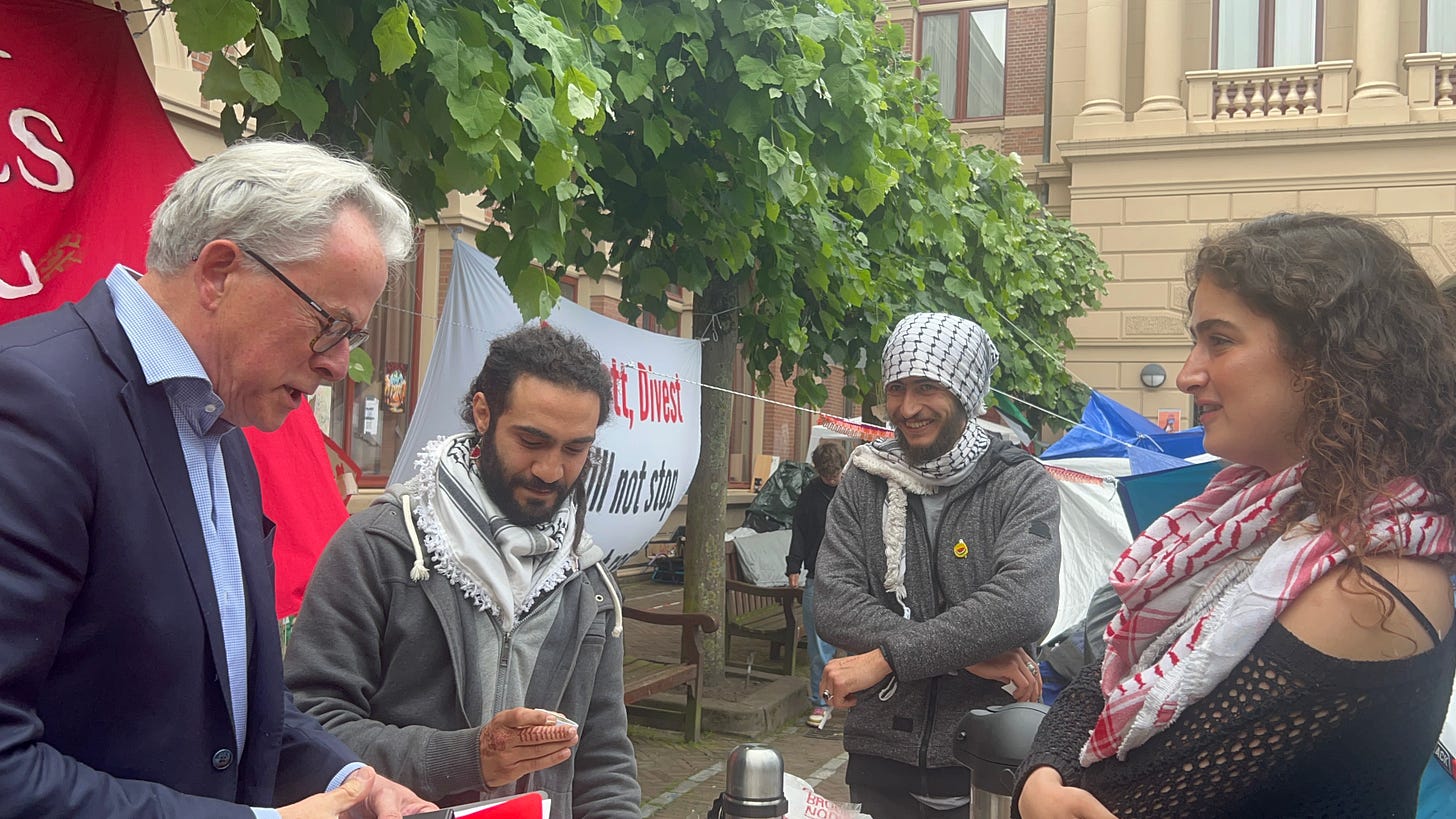The Mayor Meets With the RUG Student Encampment to Address Ongoing Efforts and Challenges
Students at RUG continue their peaceful encampment to raise awareness and demand action on Gaza, organising a fundraising event and receiving a visit from the mayor to discuss safety and concerns.
"The students united will never be defeated," read a post by @encampment.rug on May 14th, following a show of solidarity with @amsterdam.encampment, who were unfairly portrayed in the press for violence. This message underscores the resilience and determination of the student movement at the University of Groningen (RUG), which has now been going strong for 18 days since its inception on May 13th.
The students have set up tents and campsites at university spaces to disrupt daily activities and raise awareness. Their goal is to prompt the universities to take concrete action in response to the tragedies in Gaza. The encampment serves not only as a protest site but also as a community hub, where educational and cultural activities such as history talks, study sessions, and art and poetry workshops keep the participants engaged and motivated.
Their Instagram page functions as a platform to educate others about real-time war crimes in Gaza and to encourage more students and staff to join the encampment in solidarity. They also accept donations for food and other necessities, demonstrating the communal effort to sustain their cause.
The University of Amsterdam protests have been gaining significant media attention due to blockades and other disruptions caused by student marches. This issue has caught the attention of the local authorities and the mayor of Groningen recently visited the encampment to assess whether it posed any threat of violence or unrest, akin to incidents in other cities.
Laleh, one of the media spokespersons for the encampment, provided insights into the meeting with the mayor. "Today we had a meeting with the mayor of Groningen. After two weeks of trying to get into that meeting, he came to listen to our story and ask us questions. The mayor's biggest concern was our safety and how we protect ourselves. We have told him we are very good at protecting ourselves, but still, from the outside, other parties are making our jobs harder."


Following the meeting, the mayor stated that the encampment could legally continue as long as there was no violence or danger, giving a green light for the peaceful protests to persist. This decision was a relief to the organisers, who emphasise their non-violent stance and organisational capabilities.
One of the students invited the mayor to try Za’atar with a piece of bread, a traditional food eaten in Palestine. The mayor gladly tried the spice dip and liked it, commenting "lekker," the universal word for approval in Dutch. The student was really happy that the mayor gave a chance to explore and appreciate the culture.
Alina, a PhD student and one of the university staff members involved in the encampment, elaborated on their position. "We really wanted to show the mayor that we as staff are organised, with over 120 people and growing. We have made all our positions clear and now need actions and reactions from the university, which are not forthcoming apart from these dishonest communiques."
Alina also addressed the safety concerns frequently mentioned by the university. "We are very much aware of us doing this, not necessarily being a safe thing, that there's always instigators against us. Even before the encampment, we were regularly attacked by Zionists and instigators. We know how to deal with that. We know how to de-escalate that. We are grown-ups, we know how to deal with this."
Furthermore, Alina criticised the university's insinuations that the encampment poses a threat to Jewish staff and students. "This is really dishonest because we have Jewish staff and students supporting this encampment, sleeping in this encampment. They are actually doing a very anti-Semitic thing by conflating anti-Zionism with anti-Semitism."
Despite these challenges, the students remain steadfast. They continue to organise and hold various activities to maintain momentum and pressure on the university administration.
Tomorrow, they are planning a fundraising event at the Harmonie building to gather more support for their cause. They call on students, staff and everyone else to visit them tomorrow and support their activities. With continued support and solidarity, the students aim to sustain their efforts until meaningful changes are achieved.




